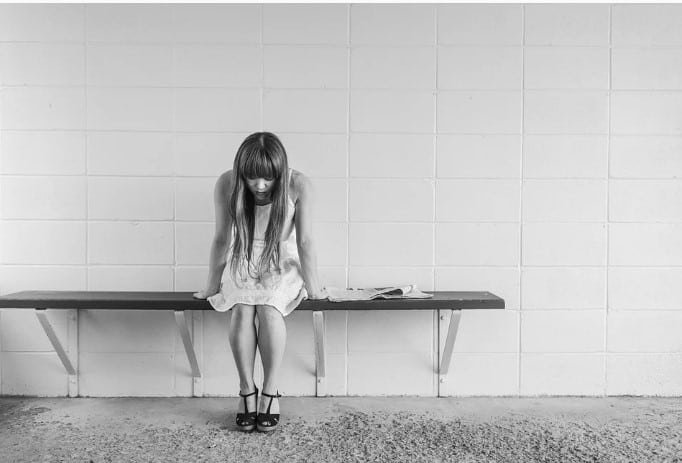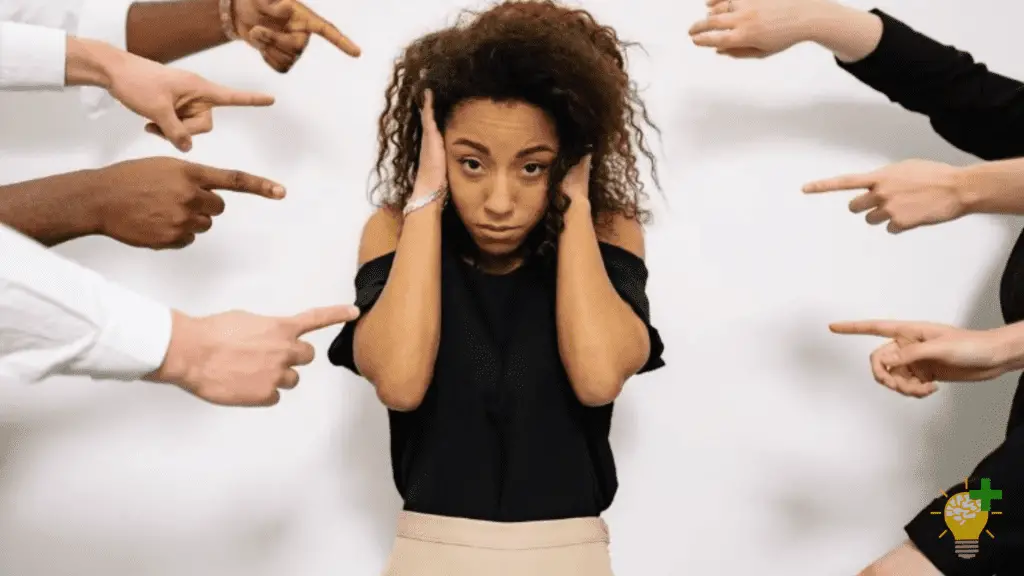You probably already know that extroverts enjoy socializing, being around people, and remaining calm and collected in social situations.
This is why it can be confusing if you consider yourself an extrovert but still feel uncomfortable being around people sometimes. You are left to wonder whether you have misinterpreted your personality trait all these years.
But really, can extroverts have social anxiety?
Here’s a straightforward answer: Yes, extroverts can feel out of place in social situations, too!
Why is this so?
Keep reading to find answers. I’ll also share a few tips on how to mitigate social anxiety as an extrovert.
What Is Social Anxiety?
Social anxiety is a chronic mental health disorder that makes the sufferer experience irrational anxiety about social interactions. In other words, you have social anxiety if meeting new people or interacting with others makes you feel extremely uncomfortable.
Some of the surefire signs that you have social anxiety include:
- Heart palpitations
- Shortness of breath
- Sweating
- Intense fear of interacting with strangers
- Constantly avoiding social situations
- Always preferring one-on-one interactions to group meetings
Social anxiety is common among introverts. They generally prefer situations where they are mostly by themselves or spend limited time with a small group of people.
However, extroverts can experience this disorder, too. However, unlike introverts, being in groups (large or small) is not what worries an extrovert who has social anxiety. Instead, the fear of not being accepted bothers them so much.
But how can extroverts have social anxiety when it seems their personality traits naturally let them enjoy the company of others? How can they struggle with a social anxiety disorder when they seem to possess excellent social skills?
I’ll address this in the next section.
Extroverts and Social Anxiety

Social anxiety is one of many anxiety disorders, and anyone can have it regardless of their personality traits.
And speaking of personality traits, here’s a post where I share my thoughts on the ambivert personality trait and how our traits can change over time.
Getting back to the extroverts and social anxiety, why should an extrovert have an irrational fear of social situations?
Here’s the thing. No one likes being judged.
But most importantly, anyone can fall into the trap of worrying too much about others judging them.
Here’s an example.
Joan walks into the office, and her work colleagues suddenly go quiet. She naturally assumes they were saying something unpleasant about her.
Ordinarily, she can choose to ignore it and carry on her duties unfazed. However, if Joan has social anxiety, she will likely over-analyze and worry about what her colleagues may be saying about her.
Tons of questions will flood her mind: “Have I done or said something silly?”
Joan may allow negative self-talk like, “I’m sure I’ve made a fool of myself again” to make her second-guess herself and lose her self-esteem.
Here’s the tricky thing about extroverts. They are energized when they are around other people, making social anxiety quite difficult to handle.
On the one hand, avoiding social situations because of social anxiety can quickly push them into depression. On the other hand, the anxiety disorder will most likely make them actively look for evidence of disapproval from others when they find themselves in social situations.
In other words, the disorder makes it difficult for them to withstand being disconnected from others for too long. Yet, they worry about being accepted by others.
Tips for Mitigating Social Anxiety as an Extrovert
This post won’t do you much good if all it does is simply confirm that extroverts can be irrationally uncomfortable in social situations.
Here are 9 practical tips to help you reduce social anxiety disorder’s effect on your daily functioning.
1. Let Others Know How You Feel
Some of your closest family and friends may be able to figure out when something is off with you, but they’re not likely to know exactly what you feel if you don’t communicate it.
You can recruit help from trusted friends if you let them in on your social anxiety. You want everyone in your circle to understand the level of social intensity that works for you at any moment so that everyone is on the same page.
Keeping quiet or hiding your situation may lead to more pressure and frustration since others don’t know what you are experiencing. This can, in turn, worsen the disorder.
2. Know Your Achilles Heel and Manage Your Expectations
Don’t put too much pressure on yourself to be comfortable in every group setting just because you are an extrovert. Like introverts, certain group settings are simply uncomfortable for extroverts, too.
You are simply not going to be at your best in every setting, no matter how hard you try. For this reason, it is important to recognize your weaknesses with regard to group settings so that you can avoid social engagements that make you truly uncomfortable.
It is okay to be picky about the social event you agree to host or attend. This will reduce social fatigue, making your social anxiety even worse.
Choose a social event, get-togethers, social gatherings, or group settings that feel more natural for you. There is really no need to push yourself to accept all invitations and deal with tons of social interaction, as that can increase the chances of feeling frustrated in some settings and worsen your social anxiety symptoms.
3. Ask For Support

It is easy to experience social burnout if you are always shouldering the responsibilities of hosting events or initiating them.
While it is great to be a dependable shoulder, it is also okay to ask for support when necessary. It will ease the burden of getting things together for gatherings.
Just as it is important to communicate your feelings, you should be afraid to ask others to share the weight of organizing or hosting events. You may be an extrovert, but that doesn’t mean you won’t need help now and then.
4. Accept that You Can’t Control Everyone’s Experience
Regardless of your efforts, you only have limited control over other people’s experiences. Acknowledging this can make a huge difference in the level of stress you feel about certain social situations, particularly when hosting a small or large event.
People have different ways of expressing themselves. For example, introverts at a social gathering may simply want to be by themselves and won’t want all your offerings. It is also possible that some people don’t really want to be at an event or are in a bad mood.
You simply can’t get everyone to have as much fun as you’d hoped, no matter how valiant your efforts are. Recognizing this fact can actually ease your task of trying to make everyone have a great time.
5. Focus on Helpful Thoughts
Cognitive thought distortions are usually negative and often inaccurate. Yet, that’s what social anxiety does to the individual. Knowing this, you can reduce its effect by catching yourself in the middle of negative self-talk and replacing any unhelpful thought with a more helpful one.
The secret lies in first recognizing unhelpful thoughts. Here are useful tips to help you quickly recognize these thoughts so that you can nip them in the bud.
- All-or-Nothing Thinking: Negative thoughts don’t have any form of grey areas. Everything is presented in black or white. For example, people around you either hate you or love you. If anyone does something to suggest anything besides completely agreeing with you, it automatically means they hate you and judge you.
- Jumping to Conclusion: Taking things beyond face value and particularly interpreting them in a negative light, even though there are no facts to support such conclusions. For example, two of your friends step aside to have a private chat after speaking with you. Because they are giggling and whispering, you immediately conclude that you must have made a fool of yourself, and now they are talking about your mistakes.
- Mind Reading: Being quick to interpret what others are thinking, even if you can’t actually read their minds. For example, “Everyone here must be thinking I am such a loser!”
Stop and replace the thought with something more helpful whenever you catch yourself thinking this way.
6. Be Present and Inhabit Your Moments
Anxiety often projects fear into the future, making you worry about things that may never happen.
You can free yourself to enjoy meaningful interactions in the present if you pay attention to the present moment. Worrying about things that might happen or not only robs you of the beautiful experience you can have with those around you.
Here are two of my go-to suggestions to help you be more present and inhabit your moments:
- Practice meditation. Spend about 5 to 10 minutes (for a start) sitting down and doing nothing except breathe. As simple as this practice may be, it can help you connect with your body, mind, and thinking pattern in ways you never knew before. Don’t know how to meditate? I invite you to read my post on the 7 Simple Steps to Practice Meditation for Positive Thinking.
- Regularly repeat positive affirmations. Saying these short, positive statements can help keep your focus in the here and now. Also, they can help you become the person you want to be – an extrovert who truly enjoys being around people without worrying about being judged or being accepted. If you are looking for positive affirmation ideas, why not check out these Positive Thinking Night Time Affirmations.
7. Take People at Face Value

You can never know exactly what people think or mean. If you have symptoms of social anxiety, the worst thing you can do to yourself is try to analyze what people mean. You will likely torture yourself unnecessarily, trying to figure out people’s intentions.
Simply take people at face value. Believe that they mean what they say and move on. Don’t try to read meaning into their words and actions – not for their sake, but for the sake of your mental health.
8. Take Baby Steps
One good way to cope with social anxiety as an extrovert is to set goals. But only set goals that won’t overwhelm you.
You want to take baby steps to avoid feeling pressured.
Perhaps, you could set a goal to have a chat with one or two persons per event. This way, you will satisfy your innate desire to connect with others, yet you won’t be overly worried about the interactions.
Remember to pat yourself on the back each time you achieve a goal, no matter how small the goal is. The more you celebrate yourself, the more your brain will associate feeling good with that activity. Little by little, you’ll start to overcome whatever fear you have about social situations.
9. Seek Expert Help
Lastly, you might want to consider recruiting a help of a therapist. This is particularly the case if the disorder persists and significantly interferes with your daily functioning.
Mental health professionals can treat social anxiety disorder using a few different approaches, one of the most effective approaches being cognitive-behavioral therapy (CBT). The treatment involved identifying and changing the negative thought patterns that lead to anxiety. It also teaches you coping strategies that gradually minimize the anxiety you associate with certain social situations.
Key Takeaways
Can extroverts have social anxiety? Yes, extroverts can have fears about a social situation, too! These experiences aren’t limited to introverts, so you don’t have to worry that something is awfully wrong with you – no, you’re not experiencing something out of the ordinary.
It is crucial to cut yourself some slack. Even if you are the friendliest, loudest, and friendliest life of the party in your circle, it is completely okay to have reservations about certain group settings.
However, it is important not to let the fear of a social situation interfere with your normal functioning. Implement the above tips if social anxiety is choking the life out of your usual bubbly self. It is the best way to find positive emotionality when dealing with social anxiety symptoms.




